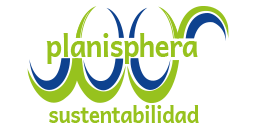| Get informed | |
| Act accordingly | Influence the public sphere |
Ideas for contribute to Ecological transition
Category (en-gb)
Get informed
There is information on environmental issues we all face that can cause distress without providing alternatives to channel our concerns. Here we offer some resources that may be useful to understand the challenges and ways to face them:
David Attenborough: UA Life on Our Planet
Trailer of the documentary in which this famous naturalist reflects on the defining moments of his life and the devastating changes he has witnessed. Provides a snapshot of the global loss of nature and the solutions to help save our planet.
How to Save "Our Planet"
In this video and in the documentary series , Attenborough seeks to inspire people to protect nature facing the environmental crisis we find ourselves in.
An inconvenient truth
https://www.documaniatv.com/naturaleza/al-gore-una-verdad-incomoda-video_417669111.html
A classic documentary on climate change that provides concrete actions that we can all undertake.
Category (en-gb)
Act accordingly
There are three main ways we can act in our daily lives:
-
Modifying our diet
Consuming natural, local or regional foods that have been sustainably produced.
Changing our consumption patterns
Exploring and restoring nature in our locality
Finding out, getting to know, planting trees and making pollinator gardens, always focusing on native species of your locality. There are resources that can help you in this process. For example, for Mexico City -where Planisphera is based- these guides are available:
-
Change our energy consumptiona
Ask the businesses we buy from for change
-
To achieve sustainable development
https://www.biodiversidad.gob.mx/diversidad/alimentos/consumidor-responsable
Sustainable food
Observing, informing yourself and consciously deciding to buy better products for the planet, as well as reducing consumption, reusing or recycling products.
http://www.paismaravillas.mx/consumo_videos.html
https://www.storyofstuff.org/movies/la-historia-de-las-cosas-2/
http://www.paismaravillas.mx/92CapsulaNina/
Bottled water: https://youtu.be/Se12y9hSOM0/
Fashion: https://blog.oxfamintermon.org/moda-ecologica-slow-fashion-fast-fashion/
Electronics: https://www.storyofstuff.org/movies/story-of-electronics/
https://www.storyofstuff.org/movies/story-of-electronics/
https://www.biodiversidad.gob.mx/Difusion/cienciaCiudadana/aurbanos/pdf/GuiaArboles_v3.pdf/
http://www.paismaravillas.mx/assets/pdf/guia_aves_comunes.pdf/
http://www.paismaravillas.mx/assets/pdf/guia_mariposas.pdf/
Sustainable cities:
https://www.bloc.tecnne.com/ciudades-sostenibles-porque-son-importantes/
We can also:
At home, making efficient use of energy https://blogs.iadb.org/conocimiento-abierto/es/el-bid-lanza-un-nuevo-mooc-sobre-ciudades-sostenibles/ and water (water supply requires energy), reduce your waste generation,reuse and, whenever possible, choose reused or recycled materials. Learn more on "How to know if you contribute to the circular economy"
https://cristinacortinas.org/sustentabilidad/perspectivas-particulares-de-economia-circular/#
Use renewable energy whenever possible and, when you can, walk or cycle, your energy is renewable and clean!
If you notice things that could be improved, it is important to mention them.
#OurPlaneta | Our business
To achieve sustainable development, we need to act in innovative ways. And that includes business.
We need to act in innovative ways. And that includes business contac us
Category (en-gb)
Influence policy making
Ask your representatives to promote the green transition. Whoever you vote for, demand that they set a transition agenda.
Change storyofstuff.org
Solutions: storyofstuff.org
José Mújica: la crisis económica, la crisis ecológica, es en sí, una crisis política. https://www.youtube.com/watch?v=pxxsV2QrJK4
Thinking consumerism and what we are looking after - George Monbiot
Joseph Stiglitz: Inequality as a market failure https://www.youtube.com/watch?v=mbdMWjn7tT4
Demand your government to support community conservation
Despited the use of natural resources by the inhabitants of rural areas is often deemed as a negative, it is quite the opposite since it is generally carried out in processes connected with nature and combined with care and conservation actions. In Latin America, indigenous and tribal territories comprise around a third of the continent's forests and a similar patterns is observed in other regions of the planet. In Latin America, 14% of the carbon is stored in the world's tropical forests, and these territories are also home to an enormous diversity of wild fauna and flora and play a key role in stabilizing the local and regional climate.
In fact, the preliminary analysis contained in this (document, suggests that investments and policies aimed at strengthening collective management of such territories could significantly reduce expected carbon emissions at low cost, in addition to offering many other environmental and social benefits.
Here is a document from FAO and FILAC on community / indigenous forest management: http://www.fao.org/americas/publicaciones-audio-video/indigenas-y-gobernanza-de-bosques/es/
